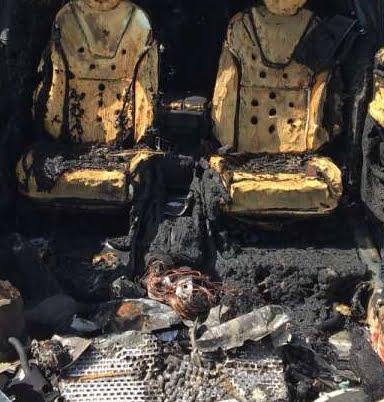
The US National Fire Protection Association (NFPA) emphasises in its latest publication, the fire challenges posed by electric vehicles. pinfa is actively developing cooperation with the automotive industry, materials suppliers and experts with workshops on e-mobility held over the last year in China, Japan and Europe (see pinfa Newsletter n°109). NFPA cite the case of a Tesla electric car which crashed at high speed in Mountain View California (3/3/2018) was in flame within a few minutes. Fire fighters extinguished the fire a couple of minutes on arrival, but the batteries continued to hiss and pop, and firefighters feared the whole car frame could be energised: fully charged, the batteries contain 75 kW of energy. With no other solution, the fire service called Tesla, whose headquarters is nearby. The Tesla engineers dismantled damaged parts of the battery, cell by cell, dropping cells into buckets of water, and isolated exposed wiring. The highway was closed for 6 hours before the car was towed away by the fire services (standard tow companies having refused to take it). The car then reignited twice over 24 hours at the salvage yard, and then again six days later. Overall, the incident occupied fire service teams for seven hours, compared to <45 minutes for a conventional vehicle. Tesla has blamed a missing freeway battier for the crash.
“The number of electric vehicles on the road is growing rapidly. Even so, critical questions remain about stranded energy and how to respond effectively to the most severe EV crashes”, NFPA Magazine Jan-Feb 2020 https://www.nfpa.org/News-and-Research/Publications-and-media/NFPA-Journal/2020/January-February-2020/Features/EV-Stranded-Energy